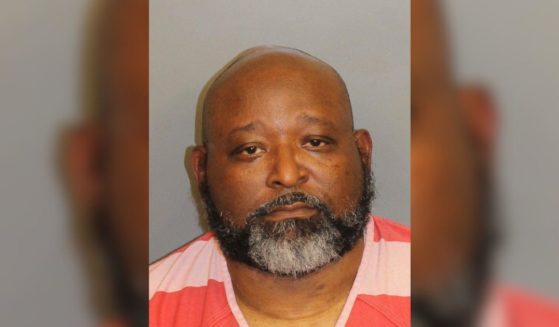Pro-LGBT Church Destroyed After Act of God - Not Even Fact-Checkers Can Deny This One
On June 2, lightning struck First Congregational United Church in Spencer, Massachusetts, sparking a fire that destroyed the church.
Initial reports of the conflagration emphasized the hope inspired when a collapsed beam and a standing chimney combined to form the shape of a cross.
Days later, however, self-proclaimed “fact-checkers” sprang into action when a viral video showed the “woke LGBTQ+ church” engulfed in flames.
Woke LGBTQ+ church gets struck by lightning and burns to the ground 😳 https://t.co/OzDjYkq7FO
— Eric Conn (@Eric_Conn) June 6, 2023
Snopes’ mendacious “fact-checkers,” whom the New York Post once called “‘Pants on Fire’ partisans,” investigated the matter.
First, Snopes reported that the “woke LGBTQ+ church” in question had indeed “publicly posted positive messages about Pride month in recent years.”
Then, Snopes conceded that a lightning strike had indeed caused the fire that destroyed the church.
Snopes declared, however, that “it’s a subjective, evidence-free conclusion to assert that the two things were linked, and that a higher power chose to burn down the church.”
Thus the Snopes “fact-checkers,” who claim special guardianship over fact itself, took issue not with fact but with context. This alone speaks volumes about the nature of “fact-checking.”
Imagine how the world must appear to people who take themselves seriously while “fact-checking” such incidents.
Imagine mustering the combination of contempt and phony earnestness required to tell other adults that “it’s a subjective, evidence free conclusion to assert…that a higher power chose to burn down the church.”
In any case, the stupendous audacity of “fact-checkers” is only half the story.
The other half of the story involves the church itself.
In “Fern Seed and Elephants,” an essay originally published in 1959 under the title “Modern Theology and Biblical Criticism,” C.S. Lewis complained that theological colleges were producing New Testament critics whose Biblical scholarship strayed further and further from the actual text.
“The undermining of the old orthodoxy has been mainly the work of divines engaged in New Testament criticism,” Lewis wrote.
Whatever one thinks of “modern theology,” either in 1959 or in the present day, there is no question that progressive churches often take the lead in “undermining” the faith by attempting to conform it to prevailing cultural fashions.
According to Snopes, the offending tweet “claimed that the church in the clip had embraced ‘woke LGBTQ+ people.'”
Here is another “fact-check” in need of correction, for the tweet in question did not use the word “embraced.”
Had it done so, it would not have distinguished the First Congregational United Church in any meaningful way. All true Christian churches embrace everyone as sinners and children of God.
The First Congregational United Church became a “woke LGBTQ+ church” when it advertised its support for so-called “pride month.”
That is a different matter altogether.
If a church can call itself “Christian” while simultaneously supporting a cult that maintains as a primary article of faith both the sexualization and required mutilation of children, then that church can call itself anything.
Truth and Accuracy
We are committed to truth and accuracy in all of our journalism. Read our editorial standards.












